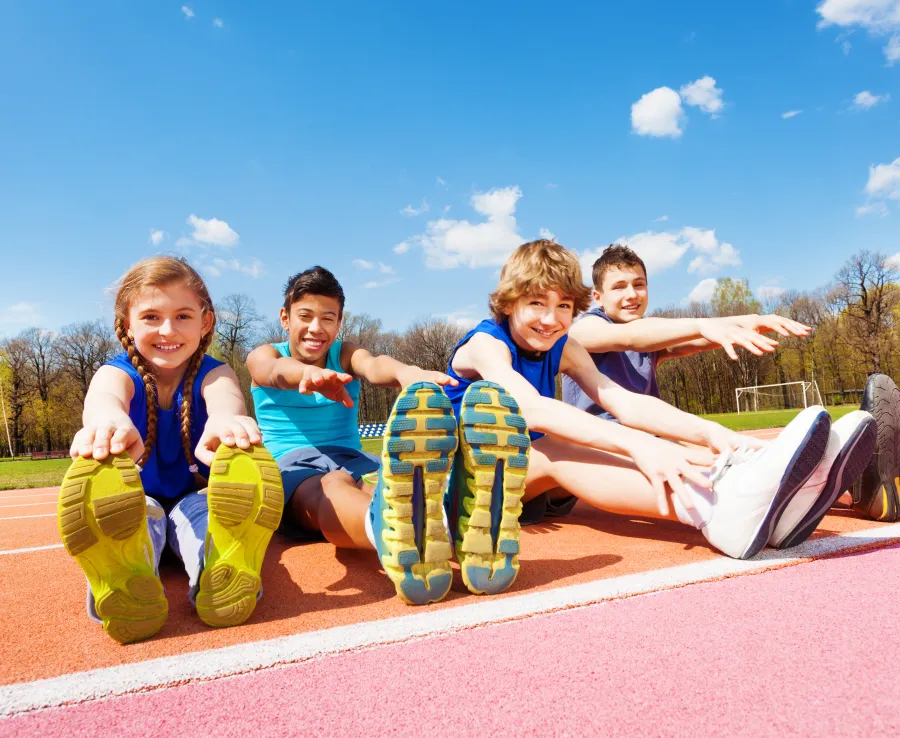Parents and carers play a valuable role in community sport. They join committees, coach teams, run the canteens and help deliver sporting experiences across the country. Supporting the involvement of a child is a key reason why people volunteer.
The sidelines of a junior sport event can be an emotionally charged space. While children and young people report high frequencies of positive behaviours from their parents, negative behaviours also happen.
Social and cultural factors can also create conditions where inappropriate behaviours are seen as ‘normal’ ways to react. For example, yelling and using offensive language at an umpire. This is not just about a few ‘bad apples’ doing the wrong thing, everyone has a role to play in modelling and supporting positive and respectful environments.
Impacts of poor behaviour
Verbal abuse directed at officials, coaches and children, has various consequences that clubs would rather avoid, including:
- Children dropping out because sport is not ‘fun’ anymore
- Increased anxiety and stress for children, officials and coaches
- Youth participants displaying poor sportspersonship, aggression and frustration
- Strained relationships between parents and coaches.
What can you do?
Community clubs and associations can encourage positive and safe sideline behaviours by everyone involved. The tips provided below will help you drive a culture of respect that fosters the attraction and retention of players, officials, coaches and volunteers.
Parents and carers
A study by the University of South Australia found that when parents engage in positive behaviours, their children were more likely to also engage in respectful behaviour towards their team-mates and the opposition. When parents engage in negative behaviours, their children were more likely to exhibit poor behaviours like disrespect and aggression. This ‘monkey see, monkey do’ effect demonstrates the influence of parents on children’s behaviour in community sport.
Tips for parents and carers:
- Be a positive role model for your child or teenager: be respectful of other parents and carers, coaches, officials and opposing teams or competitors.
- Offer words of encouragement: focus more on their effort and less on the outcome of the game or event.
- Stay positive in the car ride home: avoid bad-mouthing the officials, opponents or coaches.
- Prioritise fun: remember that children want to socialise and enjoy their time in sport. Having fun together creates happy memories. Examples of a fun environment for children include:
- Learning new skills
- Copying tricks they see professional athletes do
- Doing a fun team cheer
- Feeling supported by teammates.
- Ask “did you have fun” before asking “did you win.”
Clubs and associations
There are many ways clubs and associations can promote positive environments on the sidelines of community sport.
Setting a positive tone, supporting the people involved and acting swiftly to deal with incidents are just some of the ways of fostering greater enjoyment and safety for everyone.
Tips for committees:
- View parents and families as allies who want to help you create a safe and inclusive culture for all children. Share your values and codes of behaviour with new parents and engage them and their children in conversations about values, behaviours and expectations.
- Set the tone early and frequently. Use opportunities like pre-season gatherings to communicate values and expectations. Do this frequently – pre-game, before events, at awards nights – sometimes people require a ‘nudge’ to remind them what good behaviour looks like!
- Support your volunteers. Don’t leave it up to coaches and officials alone to call out poorly behaved parents. Use ground marshals, or have people on hand, to address off field and sideline behaviours.
- Protect U18 officials from abuse. Various sports are using green wrist bands, green socks or green lanyards to indicate when officials are under 18. These initiatives act as checks on sideline behaviour, reminding people to act respectfully towards children and young people learning the craft of sport officiating.
- Use signage and ground announcements to promote positivity and respect during events.
It’s also crucial to ensure your club association actively promotes the roles and responsibilities of everyone, as detailed in codes of behaviour, Child Safeguarding Policies and Member Protection Policies.
Play by the Rules has template codes of conduct for spectators, parents, committee members, coaches and officials. Verbal and physical abuse may breach the law or your sport’s integrity policies. Critical or harmful incidents should be reported.


